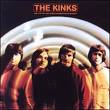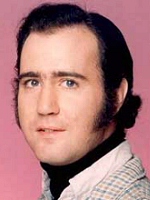People take pictures of each other, just to prove that they really existed

#22 The Kinks, The Kinks are the Village Green Preservation Society (Reprise, 1968)
This record recently made a prominent appearance on the interwebs when one of its songs showed up on Brand X Conservative Publication's (note: not real name, but I’m not going to look it up) probably intentionally humorous ‘top 50 conservative rock songs of all time’ (it included BOC and 2[!] Rush songs). Ah, good times. My first reaction was an incredulous whimpering denial. But, then I considered that Brand X might be onto something. So, how about an interesting thought experiment: what if Village Green were a conservative album? Better yet, let’s concede that point – the title track does indeed contain the chorus “preserving the old way from being abused.” All right then, the album is conservative, but what kind of conservatism does the Preservation Society stand for?
First, we should suspect that the main culprit is nostalgia, a regret for things lost. About the old mate Walter, Ray Davies sings “Walter, you are just an echo of a world I knew so long ago / If you saw me now you wouldn't even know my name.” There’s also a song lamenting the “Last of the Steam-Powered Trains.” We should also note that this album has two songs about taking photographs in order to hold onto the past (“Picture Book” and “People Take Pictures of Each Other,” not to mention the American tourists taking pictures of the British quaintery in “Village Green”).
Oddly, this conservatism doesn’t seem to put much stock in the Big Man Upstairs. Take the song “Big Sky,” where the title character sounds a lot like God, and for all that, a God that doesn’t get too involved. “Big Sky looked down on all the people looking up at the Big Sky … Big Sky feels sad when he sees the children scream and cry / But the Big Sky’s too big to let it get him down,” and later, “Big Sky’s too occupied,/ though he would like to try/ and he feels bad inside,/ Big Sky’s too big to cry.” People, it seems, have to look to something in the future to set them free: “one day we’ll be free, we won’t care, just you wait and see / ‘Til that day can be, don’t let it get you down.”
OK – so far we have here a nostalgia conservatism, and maybe a little more, a pastoralist nostalgia conservatism (the title track, plus “Village green,” and “Sitting By the Riverside”). I think we can go further, though. To return the title track, the preservation society is also the “Office Block Persecution Affinity,” and the “Skyscraper Condemnation Affinity.” We have here, in other words, some uneasiness with the trappings of Big Business, or of (can I say it?) late modern global capitalism. Instead of “little shops and china cups,” we have giant homogenous symbols of abstract alienation. Plus, coming back to the obsession with photography on this album, it’s worth noting the reason for documenting images: “People take pictures of each other / just to prove they really existed.” Is it too much of a stretch to see here a small act of resistance against the modern tendency to make people into misty, forgettable abstractions, into statistics and labor pools and marketing profiles?
I think a very intriguing version of conservatism is taking shape here. Can you imagine it? A conservatism that reaches back for something earthier and real, but that looks forward to a future time where people will be free? A conservatism that looks to other people, not to a big dude with a white beard, to achieve that goal? A conservatism that busies itself with the destruction of skyscrapers and labors to create something more real and tangible than what is provided by the post-capital abstractions of hedge fund speculation? Can you even imagine such a world where this is conservatism? That world looks nothing like the one we have now, but I might wager that it would be a better one.

1 comment:
Somebody's been readin' some Jameson. And listenin' to some Kinks. And votin' some Democrats into office. Huzzah.
Post a Comment